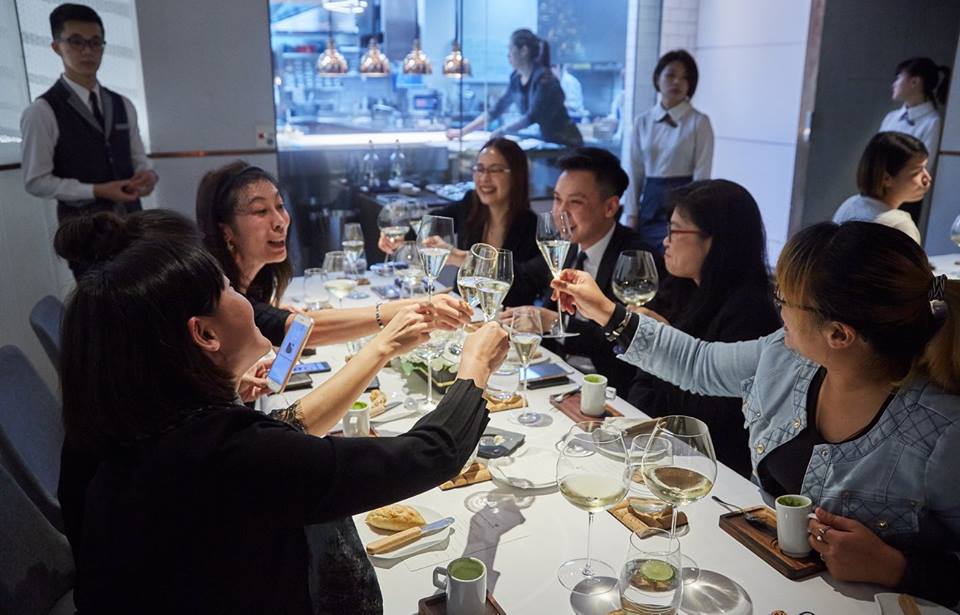Singaporeans are divided. Besides traditional "fault lines" along racial and religious differences, we also have to contend with a widening gap along divisions of class.
This was reflected in a Institute of Policy Studies (IPS) survey from Jan. 2016 to Oct. 2017. Titled the IPS Study on Social Capital in Singapore, it looked at issues of social integration.
Mind the gap
According to the study, more Singaporeans scored low ratings when asked if they had friends from different households and educational backgrounds.
This concerned our MPs enough that they felt the need to raise it in Parliament. On Feb. 5, Gan Thiam Poh asked the following two questions in Parliament:
"To ask the Prime Minister whether an inter-Ministerial committee can be set up to look into better integration of all social classes in Singapore.
To ask the Prime Minister (a) whether the income gap between different income groups has widened in the past 10 years; and (b) whether there are any plans by Government to continue to ensure the income gap between different income groups will not cause social divide and ensure social harmony and social mobility for Singaporeans."
In a relatively rare occurrence, Prime Minister Lee Hsien Loong penned a written reply to his fellow Ang Mo Kio GRC MP.
He began by saying that social harmony is "at the top" of the list of government priorities. And there are three different factors contributing to social harmony:
- Income inequality
- Social mobility
- Social integration
[related_story]
Income inequality: more aggressive government intervention
PM Lee acknowledged that Singapore's Gini coefficient was higher than that of other advanced economies.
He pointed out that inequality tends to be most severe in large cities, where a country's wealth is concentrated. When stacked up against other cities, Singapore's Gini score was similar or lower than other big cities like London, Shanghai, New York and Beijing.
The Gini coefficient refers to a statistical measure of distribution used to estimate economic inequality. In this system, a score of zero represents perfect equality while a score of one represents perfect inequality.
Lee cited a Feb. 2017 report which found that Singapore's Gini score actually fell from 0.463 in 2015 to 0.458 in 2016, which was the "most equal" score in a decade.
While this represented progress (however slight), the government has been "intervening more aggressively" to tackle the problem. Social spending on things like education, healthcare and workforce training has increased accordingly.
On the flip side, revenue has to grow too, funded by taxes such as the GST and returns from government investments.
And it's about striking the right balance:
"Providing sufficient transfers to support those who need extra help so they can help themselves, but without diminishing their incentive to work or discouraging enterprise."
Social mobility: necessary to temper inequality
This is the capability of an individual to move up (or down) the social ladder according to his or her talents, hard work and skill.
In an ideal society, it should be relatively easy for anyone to improve their lot in life if they put in the effort, no matter which background or family they were born in. Said Lee:
"Nobody should feel that his social position is fixed based on his parents’ income level or position in life.
Many Government policies are directed at improving social mobility, and countering the tendency of a mature society to stratify."
He elaborated on those policies, including making education affordable through bursaries and subsidies, as well as the SkillsFuture program for older workers.
Lee cited a study that examined children from the the 20 per cent of households with the lowest incomes who eventually went on to reach the 20 per cent of households with the highest incomes.
In this respect, Singapore did better than both the US and Denmark.
Social integration
With our diverse society, social integration is perhaps more important for us than it is for other countries.
Perhaps with one eye on the growing divides elsewhere in the world, Lee emphasised national unity despite our differences:
"We want Singaporeans to feel that we are one society; that we share experiences, values, and outlooks; that we identify with and care for one another; and that we are united and will fight together in the face of adversity."
Lee cited the usual, uniquely Singaporean methods of fostering social interactions, like our housing policies, shared spaces in neighbourhood estates, National Service and even hawker centres.
No committee, but a message
Lee concluded by saying that it was not necessary for the government to set up a specific inter-Ministerial committee, as Gan suggested, because the government was already coordinating their efforts to overcome these challenges.
It was a long answer for a relatively simple question.
But perhaps the Prime Minister saw a useful opportunity to expound upon his government's priorities in a public forum. It also continued the running theme of the government increasing social spending to improve social mobility.
If you've paid attention, you might have noticed Minister for Finance Heng Swee Keat touching upon the same theme during his speech at the Singapore Perspectives forum, and continued by DPM Tharman Shanmugaratnam during a Jan. 2018 interview with the Straits Times.
Something tells us that the upcoming Budget statement will have a similar focus.
Top image from Facebook.
Here’s a totally unrelated but equally interesting story:
If you like what you read, follow us on Facebook, Instagram, Twitter and Telegram to get the latest updates.
